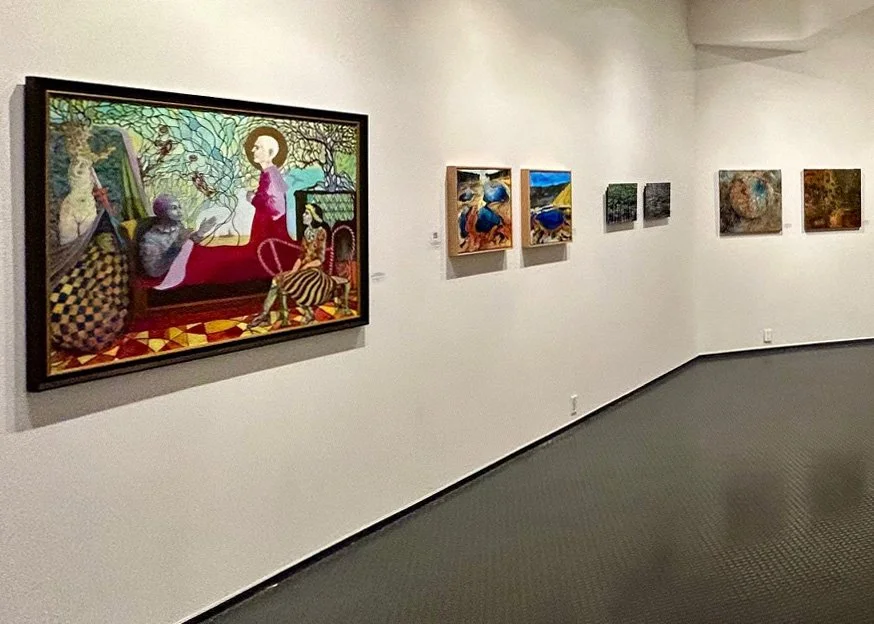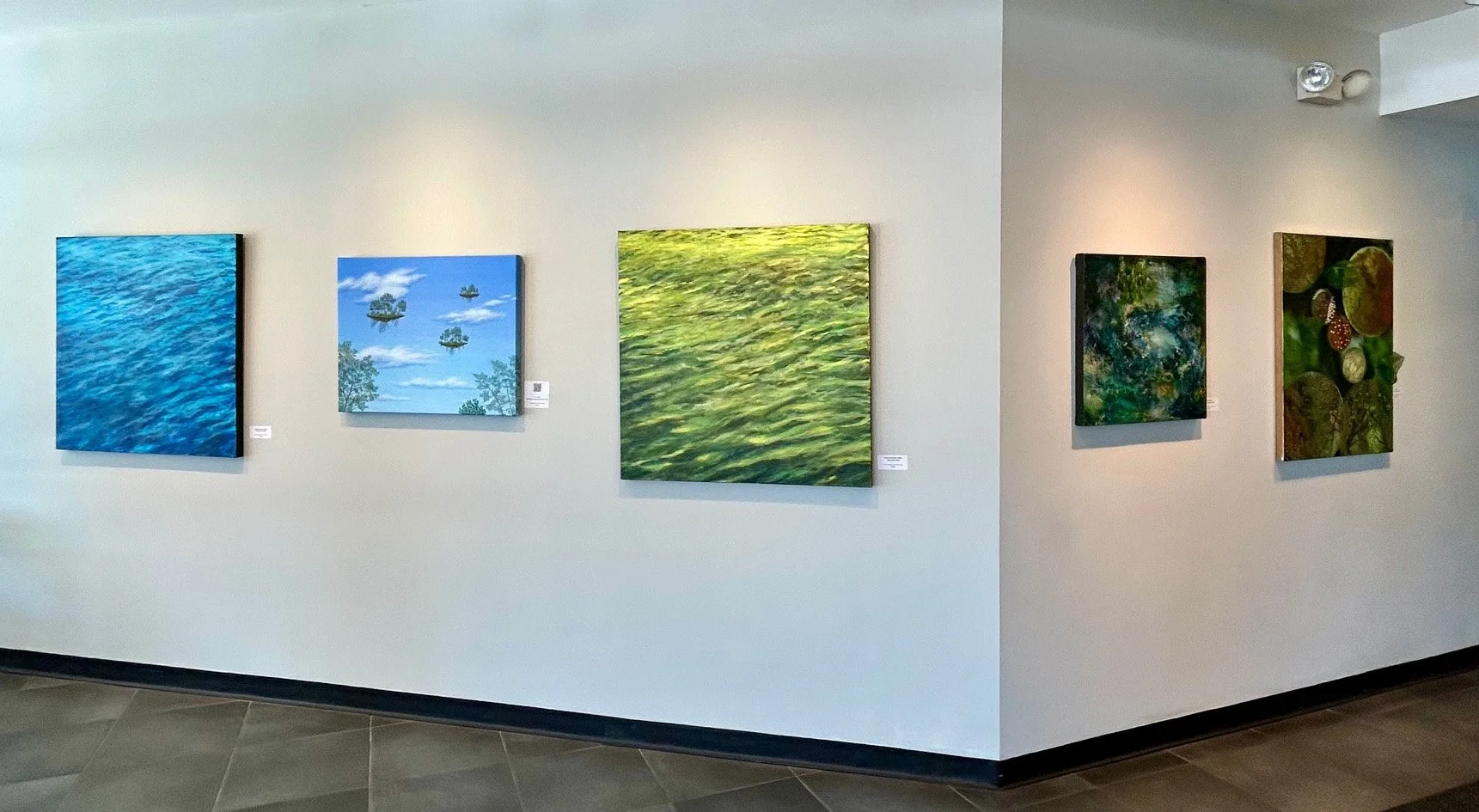On the Edge: Rising Sea Levels and Ways to Cope
Presented by Shared Habitat Earth at Laconia Gallery | Thursday, June 26, 2025
Panelists: Zoe Davis and Kate Roosa (Climate Resilience Project Managers, City of Boston), Joe Christo (Co-Director, Stone Living Lab & Chief Resilience Officer, Boston Harbor Now)
Notes by Marianne Kinzer
Did you know Chinatown is the hottest neighborhood in Boston?
That surprising fact—and many others—came up during a thought-provoking discussion at the Laconia Gallery on June 26th. Organized by Shared Habitat Earth and moderated by Barbara Eskin, the event featured climate resilience experts from the City of Boston and the Stone Living Lab. Attendees gathered in an intimate circle to reflect on one pressing, shared concern:
What is happening to our world—and what can we do about it?
Joe Christo of the Stone Living Lab put it simply: “Nature always wins.” In his view, the key to addressing the climate crisis is not to resist nature, but to adapt to it.
Boston’s Climate Outlook: Resilience in Action
Kate Roosa and Zoe Davis, both with the City of Boston’s Office of Climate Resilience, described how the city is preparing for climate change with a long-term, 50-year action plan. Boston is facing:
Rising sea levels
More frequent and intense storms
Increased inland flooding due to heavy rainfall
Zoe Davis, who manages the city’s extreme heat initiatives, emphasized that some neighborhoods suffer more than others. Chinatown, for example, ranks as the hottest area in Boston—a result of limited green space, an abundance of concrete and asphalt, and nearby highways that trap heat.
To help residents during heatwaves, the city shares advice on staying safe (like drinking water and using public cooling centers). Long-term solutions include planting more trees, increasing green spaces, and strengthening policies that prevent unnecessary tree removal. NGOs are also working to negotiate with private landowners to green their properties.
However, Zoe pointed out that coordination remains a challenge. There’s a need for better communication and alignment among environmental groups to form a unified strategy.
Coastal Defense: Adapting with Nature
Joe Christo introduced the work of the Stone Living Lab, a research-driven initiative focused on nature-based climate solutions. The Lab collaborates with UMass Boston and other partners to develop and test sustainable approaches to coastal protection.
Among their innovations:
Cobble berms: piles of natural stones placed along the shoreline to absorb wave energy and reduce erosion.
Eco-friendly seawall panels: designed to shelter small sea creatures and promote biodiversity, improving water quality in the process.
Flood sensors: placed both on land and at sea to collect data that helps predict where storms and floods will hit hardest in the future.
Joe warned that Boston’s geography makes it especially vulnerable—about 40% of the city is built on landfill, areas that water has historically returned to. In fact, old maps closely resemble today’s flood risk maps. Most inland floodwater eventually flows into Fort Point Channel.
“Nature always wins,” Joe reiterated. That’s why Stone Living Lab works with nature, not against it.
What Can We Do?
In closing, the discussion turned to individual action. One recommendation: listen to climate scientist and podcaster Dr. Ayana Elizabeth Johnson, whose show The Nature Of offers practical advice for facing the climate crisis. Season 1, Episode 3 is titled:
“Stop Doom-Scrolling, Start Building the Future” – Listen here.
This event left us informed, inspired, and reminded that while the challenges are immense, the possibilities for adaptation and action are just as powerful.


